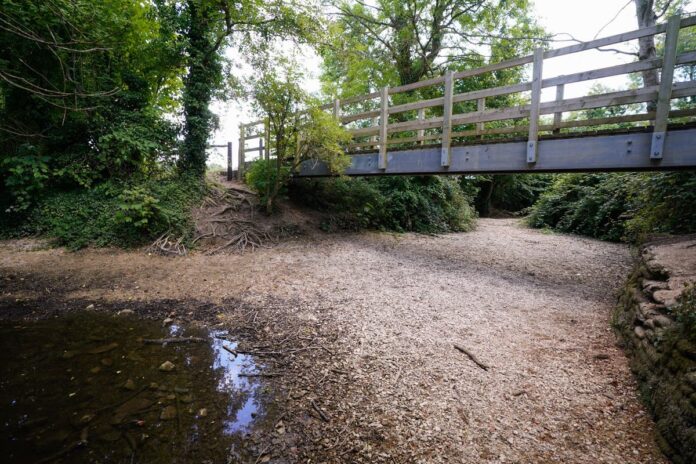There is an ‘ideological barrier’ stopping the Government from advancing policies to restore the natural environment, Caroline Lucas has said. Speaking at the launch of a campaign to encourage political parties to commit to reforms ahead of the next general election, the Green MP said the Government does not take environmental issues seriously, calling the reported decision to scrap the £11.6 billion climate pledge ‘obscene’. She said: ‘An ideological barrier is exactly what it is. It’s a failure to understand that actually moving in this direction is good for the economy, it’s good for public health, it’s good for jobs. ‘I think there is actually a reticence across the board for Government to do anything that looks like less than deregulation and everything that speaks to putting constraints on anything, even if it’s only in terms of giving public education and advice. ‘It seems to be anathema to this particular Government, with its deregulatory zeal and its allergic nature to anything that would actually protect our environment.’ Ms Lucas hosted the Nature 2030 launch, alongside the Wildlife and Countryside Link (WCL), which calls for five ‘urgent reforms’ to turn around the decline of nature and restore 30% of it by 2030. Supported by 80 environmental organisations, the campaigners want a massive increase in public spending on nature by doubling the farming and land management budget to at least £6 billion a year. They want politicians to legislate to oblige companies in finance, food, water, energy, infrastructure and development to transition towards nature and climate-friendly business practices, while restoring protected sites and expanding the public ownership of natural land. A National Nature Service is also proposed to recover habitats while training and employing thousands of people. Their fifth ask is for a new Environmental Rights Bill that would enshrine in law the right to a clean and healthy environment and give greater access to nature for poorer and more disadvantaged people. Richard Benwell, WCL’s chief executive, said only 3% of the land environment and 8% of the sea has been restored, with only six-and-a-half years to reach 30%. Sir Ed Davey , leader of the Liberal Democrats, said the Government must ‘turbo-charge’ its Environmental Land Management schemes (ELMs), which are meant to take the place of the EU’s Common Agricultural Policy and which pay farmers for working sustainably rather than subsidising them based on the amount of land they work. ELMs have been criticised for going too slowly and Sir Ed said the next election campaign must be a ‘nature election’ followed by a ‘nature Parliament’ that places greater importance on environmental policy. Under secretary of state for the Department for Environment, Food and Rural Affairs Trudy Harrison said ELMs will make ‘a huge difference’ and that people need to ‘go easy’ on farmers as it is ‘really difficult’ for them to transition. Of her Government’s environmental plan, she said: ‘I think we’ve covered an awful lot of what has been set out in the Nature by 2030. But it is tied to project management, programme management, across all of those critical paths. ‘Understanding the milestones and hitting them rather than missing them is what I think will make the difference because I don’t think anybody disagrees with what we’ve set out so far. That’s what we’ve got to do as a minimum, but crucially, is to do more.’ The Government published its third National Adaptation Plan prematurely on Monday after it was leaked to the Guardian, detailing how it intends to prepare the country for climate change. It has since been widely criticised by experts who called it weak and not ambitious enough. For nature recovery, the Government wants to halt species decline by 2030 and reverse it by 2042, create 16.5% more tree cover in England by 2050 and recover Marine Protected Areas (MPAs). Earlier this year, the Government designated three new MPAs and while campaigners welcomed the move, they said that it did not go far enough. Ms Lucas said: ‘While I welcome the designation of the first three highly protected marine areas, at this rate of progress they will take a staggering 260 years for 30% of English seas to be effectively protected. This is patently too slow.’ Craig Bennett, CEO of the Wildlife Trusts, said: ‘Always the biggest problem is that the vast majority of politicians seem to see nature as some kind of bolt-on, separate from the current agenda. ‘And yet, we’re seeing today very clearly, and goodness there’s so much evidence of it, if you want a good, successful, prosperous economy, if you want to take pressure off the NHS, if you want a healthy population, if you want a country that people want to invest into and if you want a happy society and if you want jobs for the future, we’ve got to tackle the nature crisis.’
‘Ideological barrier’ between Government and nature policies, says Green MP
Sourceindependent.co.uk
RELATED ARTICLES


